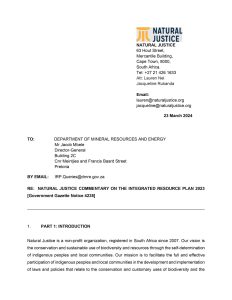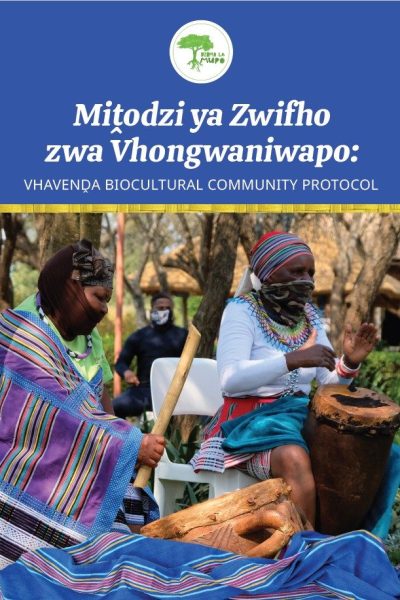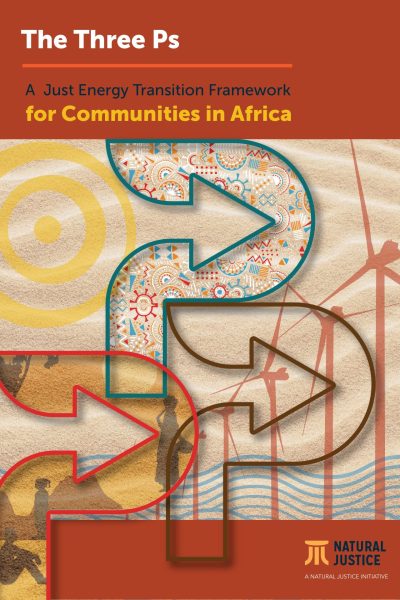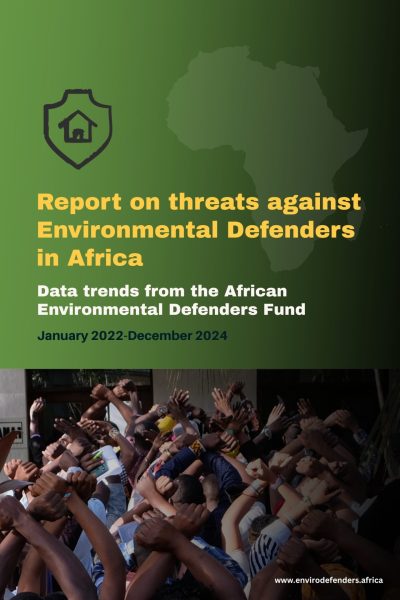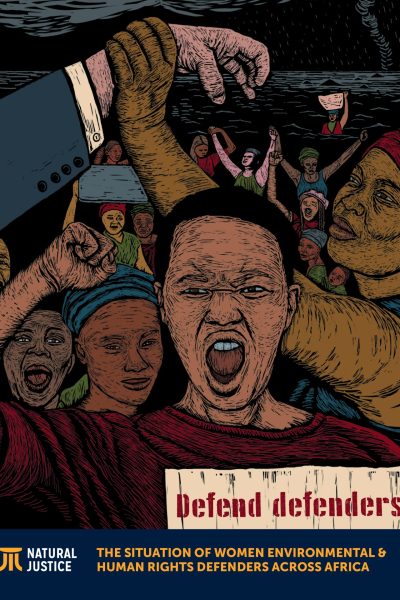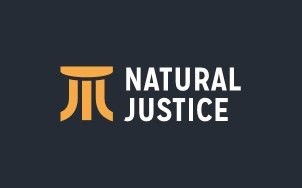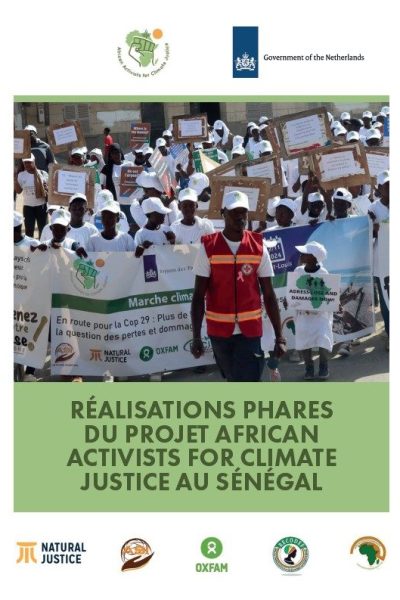South Africa published the Integrated Resource Plan 2023 to update the Integrated Resources Plan 2019. Natural Justice made a submission under general comments and themes.
The IRP2023 lacks the foundations to be an energy planning document for South Africa until 2030 or further. For energy planning there needs to be considerations of the current legal framework, international commitments, energy justice and respect for rights of communities and indigenous people.
Natural Justice recommends that:
- The IRP2023 is redrafted considering the current legal framework cited above, energy justice and rights of communities and indigenous people.
- The DMRE must urgently proceed with developing an Integrated Energy Plan which will then speak to a new draft of the IRP.
- That energy planning is people centred.
- In terms of the Energy Justice Framework:
- Energy modelling should be based on an Energy Justice Framework which considers the full life cycle of the chosen energy, human and environmental costs.
- The Energy Justice Framework’s different principles should be used to analyse energy systems, such as availability (people deserve sufficient energy resources of high quality), affordability (access to affordable energy services, especially for the poor), transparency and accountability (access to high-quality information about energy and the environment, and fair, transparent and accountable forms of energy decision-making), intragenerational and intergenerational equity (fairly access to energy services for present and future generations), responsibility (protect the natural environment and reduce energy-related environmental threats), due process (respect human rights in the production and use of energy), sustainability (energy resources should not be depleted too quickly), resistance (opposition to energy injustices) and intersectionality (recognition of new modern identities in society and links with different forms of injustices, economic, environmental etc.)
- The Energy Justice Framework should be adopted in energy planning and decision making considering the three key elements of justice: recognition of those affected by energy injustices, a fair distribution in society of costs and benefits derived from energy services and a fair administrative process.
- That in energy planning there is consideration of community owned energy, community benefit sharing and mini grids.

